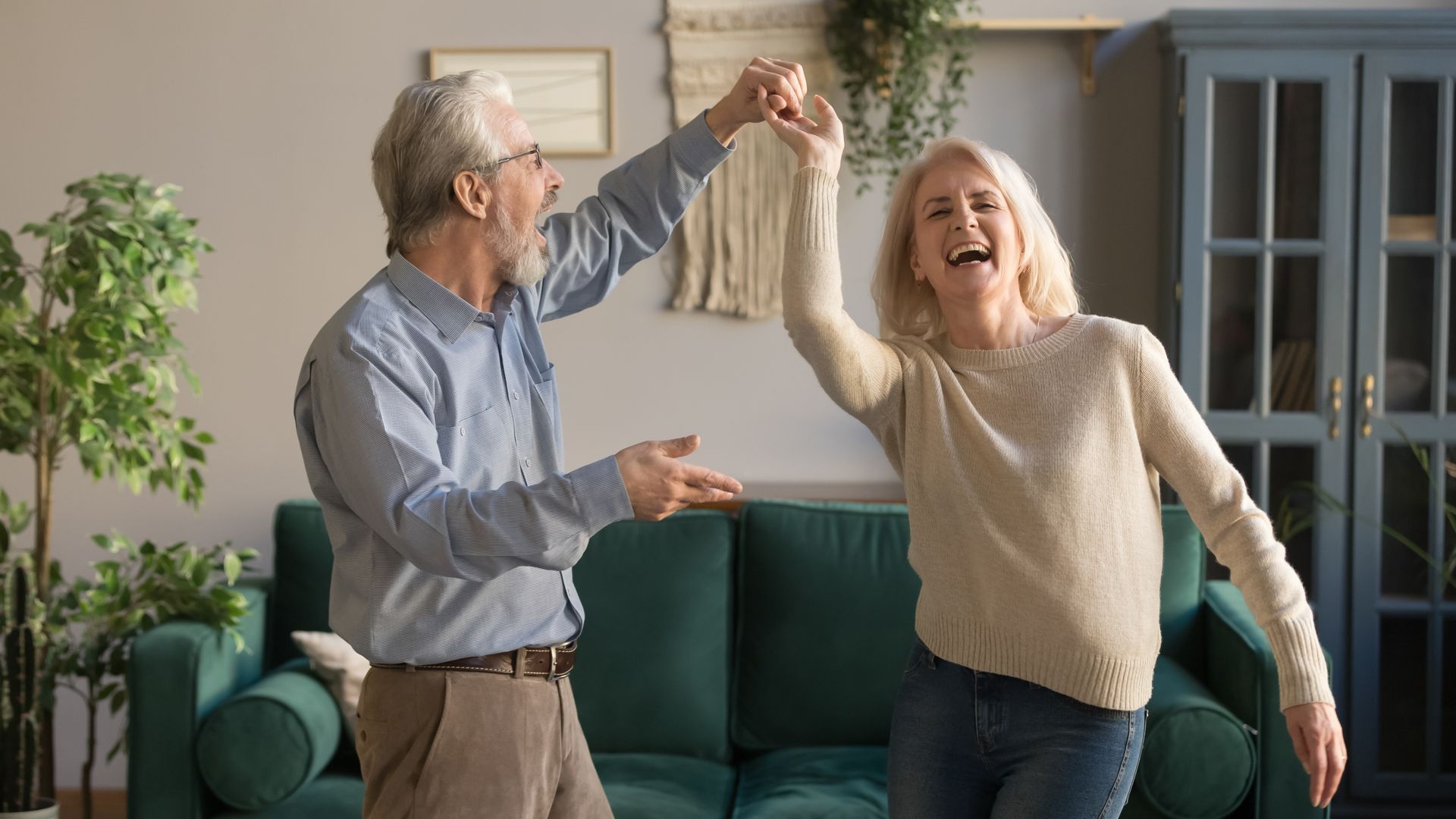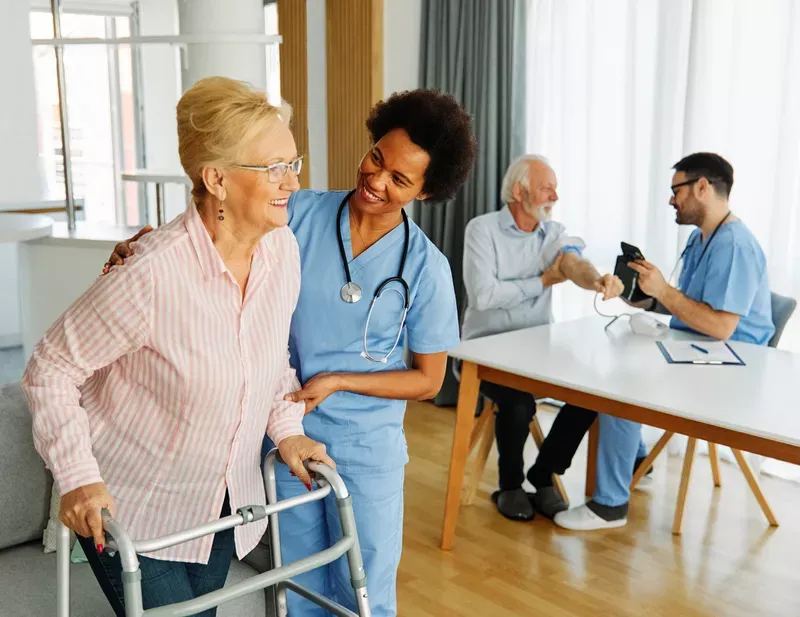
Seniors in assisted living often face challenges that impact their emotional well-being, including feelings of loneliness, loss of independence, and changes in daily routines. While flowers and gifts are thoughtful gestures, they do not always provide the long-lasting emotional connection seniors need. Research suggests that meaningful social interactions significantly improve mental health and overall life satisfaction for older adults.
Developing deeper connections with seniors in assisted living requires intentional efforts that go beyond traditional tokens of appreciation. Regular communication, shared activities, and personalized interactions can enhance their quality of life and provide a sense of purpose. Therefore, finding meaningful ways to support seniors is essential for their emotional and physical well-being.
Prioritize Consistent and Meaningful Communication with Seniors in Assisted Living
Regular communication is crucial in maintaining emotional bonds with seniors in assisted living. A National Institute on Aging study found that frequent social interaction helps reduce stress and improve cognitive function in older adults.
Whether through in-person visits, phone calls, or video chats, consistency is key to making seniors feel valued and remembered. Establishing a routine for communication ensures they have something to look forward to and reduces feelings of loneliness.
Beyond casual conversations, it is important to engage in meaningful discussions that show genuine interest in their lives. Asking about their past experiences, hobbies, and memories fosters deeper emotional connections.
Technology can help bridge communication gaps, especially for families who live far away. Video calls, messaging apps, and even social media platforms allow seniors to stay connected with loved ones. A Pew Research study found that 40% of seniors now use smartphones, making digital communication an increasingly viable option. Assisted living staff can facilitate these interactions by providing technical support when needed.
Sending handwritten letters and personalized notes adds a special touch to communication efforts. In a world dominated by digital messages, receiving a physical letter can be deeply meaningful for seniors. Including printed photos or small mementos can further enhance the emotional value of these messages.
Engage in Shared Activities with Seniors in Assisted Living
Participating in activities together strengthens relationships and gives seniors in assisted living a sense of joy and purpose. Research shows that engaging in meaningful activities can lower stress levels and improve mental well-being in older adults. Activities like reading together, solving puzzles, or playing board games create enjoyable shared experiences. These moments of connection provide both entertainment and emotional fulfillment.

Music and art-based activities can be particularly powerful in fostering connections. Studies indicate that listening to familiar music can evoke strong positive emotions and memories, especially in seniors with cognitive decline. Attending a music therapy session, playing an instrument, or simply singing together can create an uplifting and engaging experience. Similarly, creative activities like painting or crafting allow seniors to express themselves while strengthening bonds with loved ones.
Outdoor activities offer additional opportunities for meaningful interaction. Walking together in a garden, sitting outside for fresh air, or participating in light exercise routines can benefit physically and emotionally. According to studies , spending time outdoors helps improve mood and reduces anxiety in seniors. Even simple activities like watching birds or tending to plants can provide comfort and joy.
Cooking and sharing meals together can also be a wonderful way to connect. Preparing a favorite dish or enjoying a special meal can evoke positive memories and create a warm, family-like atmosphere. Since food is often tied to culture and tradition, these moments can help seniors feel more connected to their past and their loved ones.
Encouraging Social Engagement and Community Involvement
Seniors in assisted living thrive when they feel like valued members of a larger community. Social connections with peers and participation in group activities contribute to a sense of belonging. Socially active seniors experience lower rates of depression and cognitive decline. Encouraging participation in social events, group exercises, or community projects enhances their emotional well-being.
Volunteering opportunities within the assisted living community give seniors a sense of purpose. Helping with small tasks, mentoring younger individuals, or contributing to communal projects can be incredibly rewarding. Even those with mobility challenges can engage in light volunteer activities, such as writing letters or making small crafts for others.
Bringing intergenerational programs into the assisted living setting fosters meaningful interactions between seniors and younger generations. Seniors who engage with children and young adults experience improved cognitive function and emotional well-being. Activities such as storytelling sessions, tutoring, or simple social visits from students create a vibrant and inclusive environment.
Recognize the Importance of Emotional Support
Emotional support is one of the most valuable gifts for seniors in assisted living. Many older adults experience feelings of loss, grief, or uncertainty as they transition to a new living environment. A WHO report found that emotional distress in seniors is often linked to a lack of supportive relationships. Providing reassurance, validation, and empathy helps them feel understood and valued.
Listening to seniors’ concerns and validating their emotions fosters a sense of security. Simple phrases like “I understand how you feel” or “You are important to me” can have a powerful impact. Encouraging open conversations about their worries allows them to process emotions in a healthy way. Being patient and understanding during these discussions helps build trust and emotional connection.

Encouraging seniors to express themselves through writing or journaling can be therapeutic. Many older adults find comfort in documenting their thoughts, memories, or feelings. Journaling provides an outlet for self-reflection and emotional processing. It also allows caregivers and family members to gain insight into their loved one’s experiences.
Small gestures of kindness, such as holding a hand or offering a comforting touch, can provide immense emotional support. Nonverbal communication, including eye contact and reassuring smiles, conveys warmth and care. These simple actions help create a nurturing environment where seniors feel safe and appreciated.
Creating a Personalized and Comfortable Living Space
A familiar and personalized living space helps seniors in assisted living feel more at home. Research suggests that a well-designed environment can improve emotional well-being and reduce stress. Bringing in meaningful items such as family photos, favorite books, or personal decorations adds comfort and familiarity. These elements provide a sense of continuity and connection to their past.
Adjusting lighting, furniture, and layout to match their preferences can also enhance comfort. Soft lighting, cozy seating, and organized spaces create a more inviting atmosphere. Creating designated areas for hobbies or relaxation makes their living space feel more personalized. Caregivers and family members can help arrange the environment to suit their needs.
Incorporating familiar scents, such as lavender or vanilla, can be calming. Studies show that aromatherapy can help reduce anxiety and promote relaxation in seniors. Using scented candles, essential oils, or familiar fragrances enhances their sensory experience. A comfortable living space positively impacts their overall emotional well-being.
Easy access to favorite music, movies, or other entertainment sources helps maintain a sense of enjoyment. Having a television with familiar shows, a radio with favorite stations, or access to audiobooks keeps them engaged. Personalizing these entertainment options allows seniors to continue enjoying their favorite pastimes.
Find More Ways to Connect with Those You Love
Seniors in assisted living benefit most from consistent emotional support, social engagement, and meaningful interactions. Families can create lasting connections through communication, shared activities, and thoughtful gestures that go beyond traditional gifts. A strong support system enhances their emotional well-being, reduces feelings of isolation, and improves overall quality of life.
At Assured Senior Living, we prioritize a warm, engaging, and supportive environment for our residents. Our personalized approach ensures that seniors receive the care and attention they need to thrive. If you are looking for compassionate assisted living services, contact us today to learn more.


